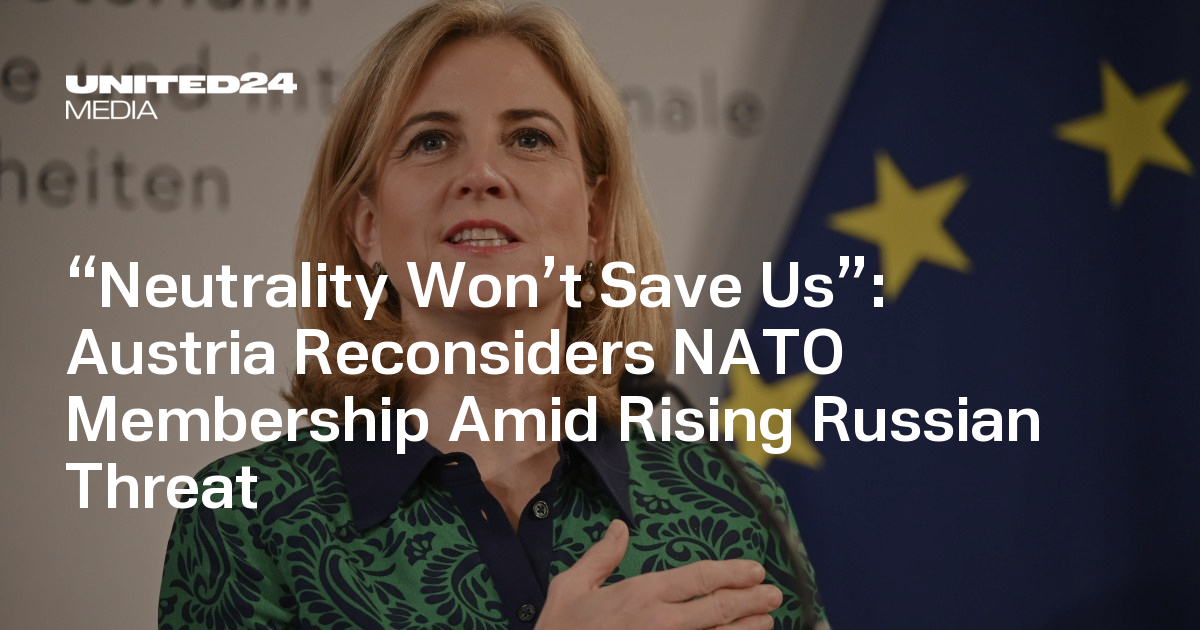Austria’s Foreign Minister Beate Meinl-Reisinger has called for an open discussion on the country’s long-standing neutrality, stating that it no longer guarantees national security in the face of growing geopolitical instability and an increasingly aggressive Russia.
In an interview with Die Welt, Meinl-Reisinger emphasized that neutrality alone does not protect Austria and pointed to the importance of strengthening defense capabilities and deepening international partnerships. “Austria is protected by investment in its own defense capacities and in its partnerships,” she said.
The minister’s remarks follow a proposal by Emil Brix, Director of the Diplomatic Academy of Vienna, suggesting that Austria consider joining the North Atlantic Treaty Organization. Meinl-Reisinger expressed support for a public debate on the issue, acknowledging that the current political and public majority remains opposed to NATO membership.
…
Meinl-Reisinger also addressed Russia’s ongoing war against Ukraine, stating that Ukraine seeks peace, while Russia continues its campaign of aggression. She added that if Russian leader Vladimir Putin were genuinely interested in peace, he would have engaged in ceasefire negotiations.
…



The idea that A42(7) is stronger than A5 is not that broadly supported. A42(7)'s wording implies a stronger commitment to “assistence”, whereas A5 seems to rely on states militarily retaliating when one of them is attacked, as if they themselves were attacked.
So even if A42(7) implies a greater obligation to assist, the kind of assistence is left nebulous, so there may not be an obligation to militarily assist. With A5, military assistance and the use of armed forces is explicitly mentioned, even if the exact length of the obligation to provide it is less clear.
Regardless, from these debates we have seen that most countries seem to believe that A5 should be used for military defence in case of a military attack, whereas A42(7) can be used for other types of attacks, e.g. terrorist attacks.
Remember there was a pretty big uproar when Greece merely suggested that they could invoke A42(7) against Turkey. So even if in theory you end up concluding that A42(7) is stronger, reality might disagree.
Greek and Cypriot security concerns viz. Turkey being sidelined is a huge hole in the European security architecture and a huge blind spot of the efforts to de-risk European security from the overdepenence to the US.
So long as Turkey keeps occupying half of an EU state’s territory, taking Article 42 as any kind of military guarantee is unserious.
Edit: I genuinely want to hear the objections of the people who downvoted this. What am I not seeing?